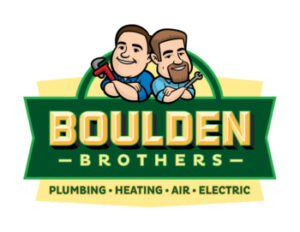The Truth About Chemical Drain Cleaners (From Someone Who Learned  the Hard Way)
the Hard Way)
Hey there! Let’s talk about something we’ve all dealt with clogged drains. You know the scene: you’re taking a shower, and suddenly you’re standing in ankle-deep water, or your kitchen sink is taking forever to drain after doing the dishes.
In moments like these, it’s super tempting to grab that bottle of chemical drain cleaner from under the sink. But wait! As someone who’s made plenty of drain-cleaning mistakes, let me share what I’ve learned about these powerful (and potentially problematic) products.
What’s Actually in These Cleaners?
Let me break down what we’re dealing with here. Chemical drain cleaners typically come in three flavors (though I wouldn’t recommend tasting any of them!):
First, you’ve got your caustic cleaners, these bad boys use lye or potash. They create heat to melt through clogs. Then there are oxidizing cleaners, which use bleach and peroxides to break down whatever’s blocking your pipes. Finally, there are the heavy-duty acid-based cleaners, usually containing sulfuric or hydrochloric acid. These are the ones that can literally eat through almost anything including, unfortunately, your pipes!
The Not-So-Pretty Side of Chemical Cleaners
Here’s where I need to get real with you. While these cleaners might seem like a quick fix, they come with some serious downsides that I wish someone had told me about sooner:
First off, they’re absolutely brutal on your pipes. Think about it if these chemicals are strong enough to dissolve hair and grease, imagine what they’re doing to your plumbing! I learned this the expensive way when I had to replace a section of pipe that had been weakened by repeated use of harsh cleaners.
Then there’s the health stuff. Remember the last time you used one of these cleaners? That burning sensation in your nose wasn’t just unpleasant it was your body telling you those fumes are dangerous. And don’t even get me started on what happens if you accidentally splash some on your skin (trust me, it’s not fun).
The Environmental Impact (Because We Should Care)
Here’s something I never thought about until recently: where do these chemicals go after they clear our drains? Straight into our water systems! That means they’re potentially harming wildlife and polluting our waterways. Not exactly what I want on my conscience when I’m just trying to unclog my sink.
When (If Ever) Should You Use Them?
Look, I’m not saying you should never use chemical cleaners. Sometimes they might be your best option. But here’s when it might be okay:
- If you’ve got a minor clog near the surface of the drain
- When you’ve already tried gentler methods without success
- If a plumber has specifically recommended it for your situation
But please, PLEASE read the instructions carefully and never mix different cleaners. That’s chemistry class gone wrong waiting to happen!
Better Ways to Deal With Clogs (That Won’t Destroy Your Pipes)
After years of trial and error, here are some safer alternatives I’ve found that work:
- The Baking Soda and Vinegar Trick: It’s like a science fair volcano in your drain! Pour equal parts baking soda and vinegar down there, wait about 15 minutes, then flush with hot water. Works great for minor clogs!
- Boiling Water: Sometimes the simplest solution is the best one. Just pour boiling water down the drain in stages. It’s surprisingly effective for grease clogs.
- Mechanical Methods: Get yourself a good plunger and a drain snake. They might not be as convenient as pouring chemicals down the drain, but they’re way safer and often more effective.
Prevention Is Your Best Friend
Want to know the real secret to dealing with drain clogs? Stop them before they start! Here’s what I do now:
- Use drain catches in every sink and shower (they’re cheap and super effective)
- Never pour cooking grease down the drain (collect it in a jar instead)
- Run hot water down the drain for a minute after each use
- Do a monthly baking soda and vinegar flush as maintenance
When to Call in the Pros
Sometimes you just need to wave the white flag and call a plumber. Here’s when I recommend professional help:
- When you’ve tried everything and nothing’s working
- If you hear weird gurgling sounds from multiple drains
- When water’s backing up in weird places
- If you’ve got recurring clogs in the same spot
The Bottom Line
Here’s what it comes down to: while chemical drain cleaners might seem like an easy solution, they’re often not worth the risks to your pipes, your health, or the environment. They’re like using a sledgehammer to hang a picture – sure, it might work, but there are better ways!
Instead, try the gentler alternatives first, focus on prevention, and keep a good plumber’s number handy for the tough stuff. Your pipes (and your wallet) will thank you in the long run!
Remember, sometimes the quick fix isn’t the best fix. Take it from someone who learned this lesson the hard way – your home’s plumbing is worth protecting!

